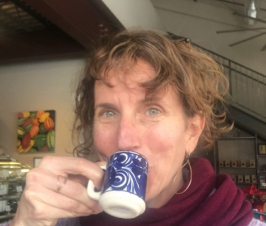New Edith Cowan University (ECU) research has found that despite having the best intentions, most people give up on their New Year resolutions within the first month.
The study also revealed that approximately half the people surveyed had the same, or nearly the same, resolution as in the previous year, and more than half of the resolutions listed focused on either diet or exercise.
The research, led by ECU Associate Professor Joanne Dickson, investigated personal goal factors that predicted greater wellbeing and sticking with one’s most important New Year resolution over time. Around 180 Australian and UK participants took part in an online survey over a two-month period. The average age of participants was 37 years and ranged from 18 to 77 years.
Key findings:
- Two thirds of participants gave up on their New Year resolutions within the first month.
- Just over half the participants pursued the same (or similar) resolution as in the previous year.
- More than half of the resolutions focused on either diet (29%) or exercise (24%).
- Approximately two thirds (64%) of the listed resolutions were described as ‘general’. A general resolution referred to an overly general or vague resolution (e.g. to get fit).
- Flexibility around achieving goals significantly predicted greater wellbeing over time.
- Goal tenacity (being persistent) did not predict wellbeing over time, nor the ability to stick to one’s most important New Year resolution.
- No significant gender or age or country differences were seen.
Set specific resolutions
Despite participants reporting a strong commitment to their most important New Year resolution and a belief that they would succeed, about two thirds of participants gave up within one month.
Professor Dickson said this might be because many of the participants set general resolutions like they wanted ‘to get fit’ or ‘exercise regularly’, rather than setting specific resolutions and plans.
“An example of a specific resolution might be — to go for a 40-minute walk around the lake with my friend Sam on Monday, Wednesday and Friday mornings,” Professor Dickson said.
“Previous research has shown that setting specific goals that include a time, place and/or people provide the mental cues to assist people to stick to their resolution goals.
“General goals or resolutions also require more thinking time, making them harder to stick to than goal resolutions that have a plan.”
Flexibility is the key to well-being
Professor Dickson said it was possible that people gave up pursuing their New Year resolutions because they were not associated with more meaningful underlying goals and values.
“The resolution to lose five kilos will more likely endure in the face of obstacles, difficulties or other competing resolutions if it’s linked to higher personal values, such as beliefs about one’s health or appearance,” Professor Dickson said.
“Our study also found that the ability to flexibly adapt one’s resolutions in response to changing situations or obstacles was positively associated with increased mental wellbeing. Whereas the ability to stick to a goal did not increase mental wellbeing or sustained resolution pursuit.”
1. Joanne M. Dickson, Nicholas J. Moberly, David Preece, Alyson Dodd, Christopher D. Huntley. Self-Regulatory Goal Motivational Processes in Sustained New Year Resolution Pursuit and Mental Wellbeing. International Journal of Environmental Research and Public Health, 2021; 18 (6): 3084 DOI: 10.3390/ijerph18063084

Razi Berry is the founder and publisher of the journal Naturopathic Doctor News & Review, which has been in print since 2005, and the premier consumer-faced website of naturopathic medicine, NaturalPath. She is the host of The Love is Medicine Project docuseries, The Natural Cancer Prevention Summit, The Heart Revolution-Heal, Empower and Follow Your Heart, and the popular 10-week Sugar Free Summer program. From a near death experience as a young girl that healed her failing heart, to later overcoming infertility and chronic fatigue syndrome and fibromyalgia through naturopathic medicine, Razi has lived the mind/body healing paradigm. Her projects uniquely capture the tradition and philosophy of naturopathy: The healing power of nature, the vital life force in every living thing and the undeniable role that science and mind/body medicine have in creating health and overcoming dis-ease. You can follow Razi on social media: Facebook at Razi Berry, Instagram at Razi.Berry and join the Love is Medicine group to explore the convergence of love and health. Look for more, and listen to more Love is Medicine podcast episodes here.

















